News Archive
06.12.2024
Designing fair e-assessments
 Photo: Carol Yepes-Moment/GettyImages
Photo: Carol Yepes-Moment/GettyImages
Do justice to the diversity of students and thereby make exams more valid - sounds obvious, but is often accompanied by complex challenges. The NOVA:ea (InNOVAtionscluster E-Assessment) research project aims to do just that.
04.12.2024
Curios about the possibilities educational technologies offer
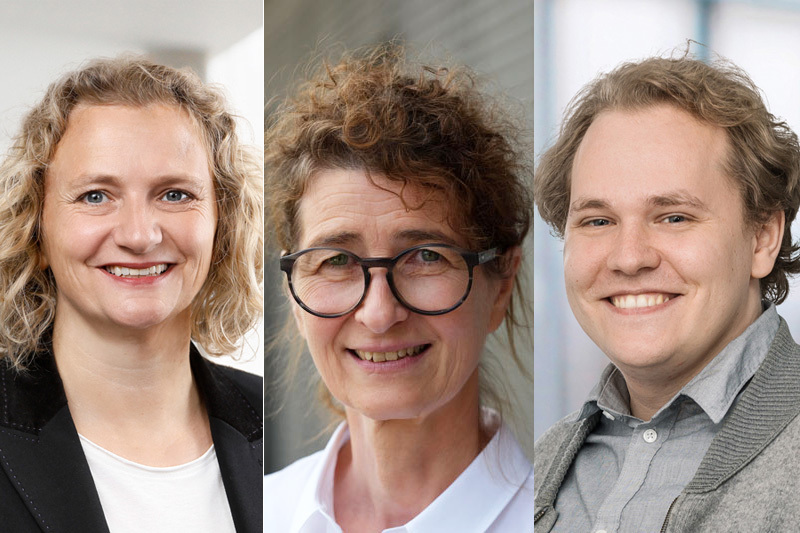 Photo: Henrik Schipper/Hardy Welsch
Photo: Henrik Schipper/Hardy Welsch
The AI.EDU Research Lab, with Claudia de Witt and her team, has been part of the CATALPA project from the very beginning. Since 2018, they have been researching how novel educational technologies can be used in a didactically meaningful way in higher education. An interview with Prof. Dr. Claudia de Witt, Silke Wrede and Lars van Rijn.
26.09.2024
Using AI to explore language learning
 Photo: Torsten Silz
Photo: Torsten Silz
How can AI improve the quality of language testing? A CATALPA project is doing the basic research here. An insight on “European Day of Languages” on September 26.
13.09.2024
From Stereotype Threat to Learning Analytics - CATALPA at the DGP Congress
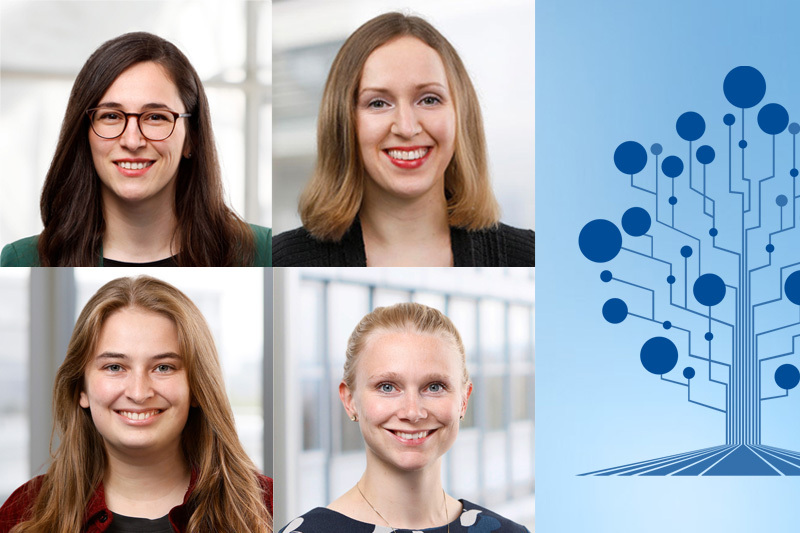 Photo: Henrik Schipper/Hardy Welsch
Photo: Henrik Schipper/Hardy Welsch
From learning analytics to group cohesion in online courses and stereotypical perceptions - CATALPA is represented with various contributions at the 53rd Congress of the German Psychological Society (DGP) in Vienna.
05.09.2024
Workshop on Recommender Systems
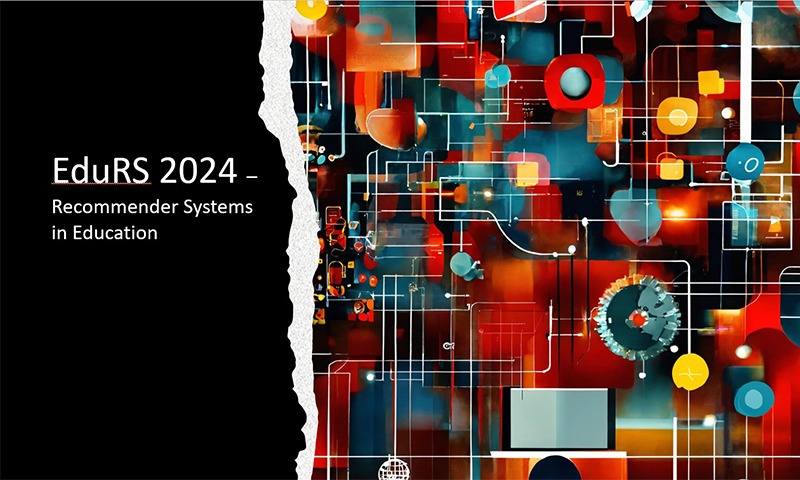 Image: Lexica (KI-generiert)
Image: Lexica (KI-generiert)
Deadline extended!!! The CATALPA project AI.EDU 2.0 invites you to a workshop at the DELFI Conference on Educational Technologies (September 9-11, 2024 in Fulda). The focus is on recommender systems in the context of higher education. Deadline for the Call for Participation is now July 31st, 2024.
04.09.2024
How universities handle crises and conflicts
 Photo: vasiliki/E+/GettyImages
Photo: vasiliki/E+/GettyImages
How can universities prepare for turbulent times - the Middle East conflict, the war in Ukraine, the climate crisis, the AI revolution? This is the topic of Dr. Len Ole Schäfer's research.
30.08.2024
Four CATALPA topics at Learning AID
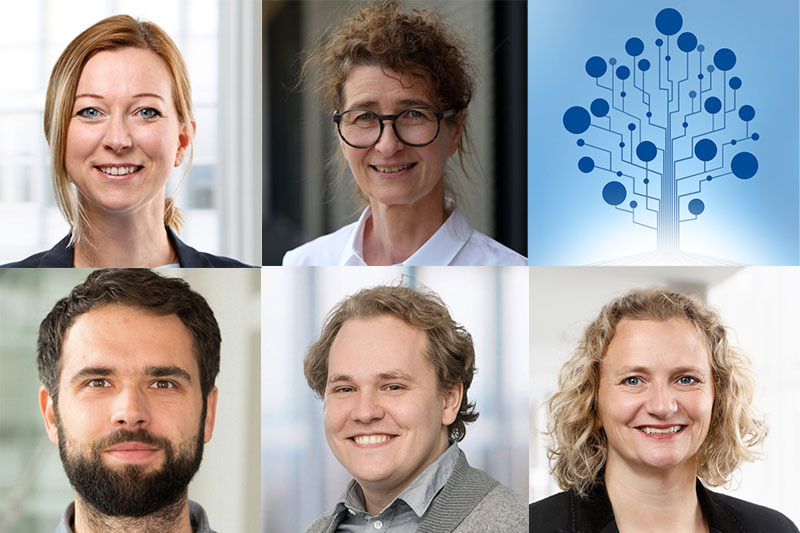 Photo: Hardy Welsch/Veit Mette/Bernd Müller
Photo: Hardy Welsch/Veit Mette/Bernd Müller
Generative AI, (trusted) learning analytics, formative feedback - CATALPA presented four different topics at the Learning AID in Bochum, Germany, from September 2-3.
14.08.2024
CATALPA presenting itself at the Campusfest
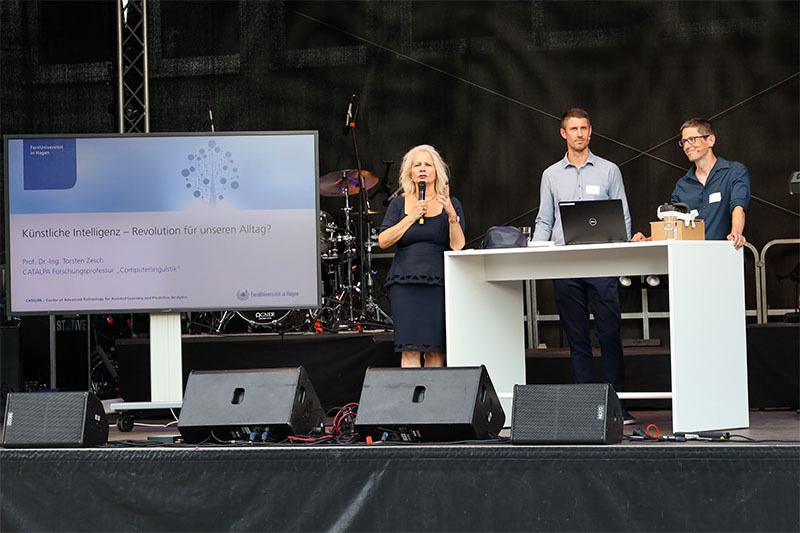 Photo: FernUniversität
Photo: FernUniversität
CATALPA offered hands-on science at the current FernUniversität Campusfest. "AI and virtual reality - revolution for our everyday lives?" was the topic of the opening lecture by Prof. Dr. Torsten Zesch and Prof. Dr. Thomas Ludwig on Roter Platz.
14.08.2024
What color is that? AI research by Marie Bexte
 Photo: SEN LI/Getty Images
Photo: SEN LI/Getty Images
Artificial intelligence (AI) is set to make our everyday lives easier in the future - including in teaching at FernUni. Marie Bexte found out that AI is not yet good at recognizing colors.
04.07.2024
Symposium on generative AI at universities
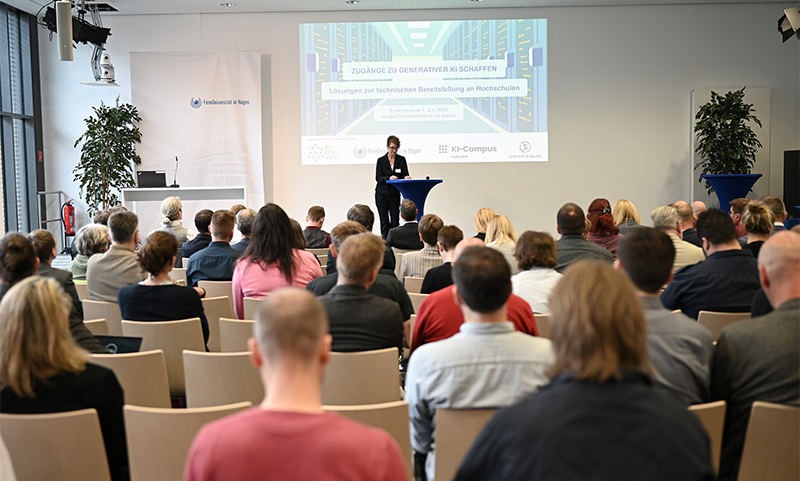 Photo: FernUniversität
Photo: FernUniversität
Creating access to generative AI: On the campus of the FernUniversität in Hagen, experts from universities across Germany discussed technical solutions for the provision of AI. CATALPA executive board member Prof. Dr. Claudia de Witt was instrumental in initiating the event.
03.07.2024
FLEXI: Guidance on the local hosting of LLMs
 Photo: Yuichiro Chino/Getty Images
Photo: Yuichiro Chino/Getty Images
How to deal with AI in university teaching? Which access points should universities provide for teachers and students? As part of the FernUni LLM Experimental Infrastructure (FLEXI) project, Torsten Zesch and an interdisciplinary team are dedicated to testing and using a locally hosted open Large Language Model (LLM).
03.07.2024
Taskforce "Artificial intelligence in education" presents recommendations to the NRW state government
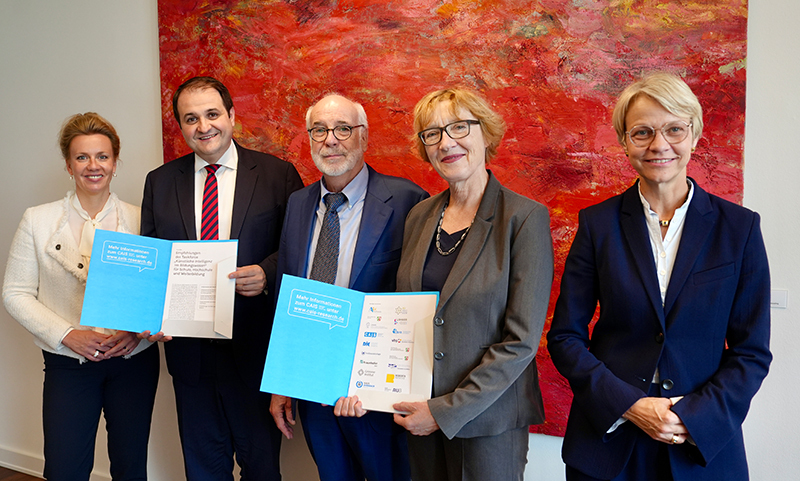 Photo: Land NRW/Florian Hemann
Photo: Land NRW/Florian Hemann
The Taskforce "Artificial Intelligence in Education" presented recommendations to the state government in Düsseldorf on July 2 on how to ensure the responsible and sustainable use of artificial intelligence in education. The FernUni was also involved with CATALPA.
02.07.2024
CATALPA executive board officially appointed after elections
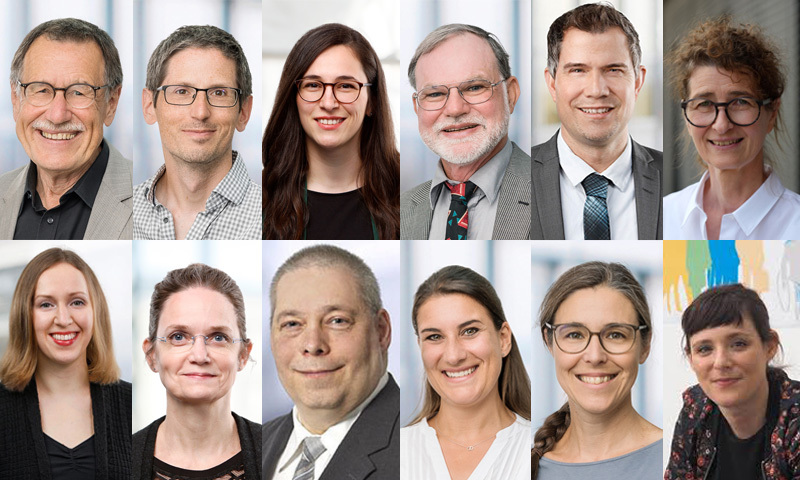 Photo: Henrik Schipper/Hardy Welsch/Bernd Müller/FernUni/Privat
Photo: Henrik Schipper/Hardy Welsch/Bernd Müller/FernUni/Privat
After the CATALPA executive board was elected with a slightly different composition, it has now been officially appointed by the Rectorate. Torsten Zesch has a new role as Deputy Scientific Director and Jennifer Hochstein has joined as a new face from the junior staff.
19.06.2024
CATALPA sponsors 19th BEA Workshop
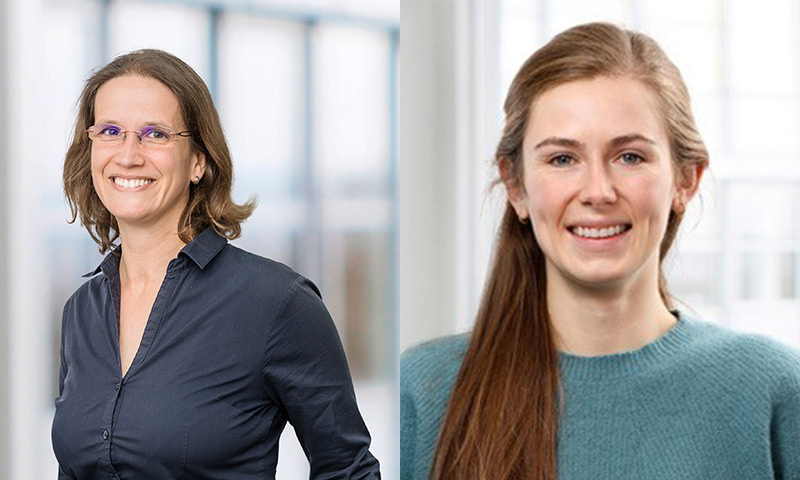 Photo: Henrik Schipper/Hardy Welsch
Photo: Henrik Schipper/Hardy Welsch
Get ready, the 19th BEA Workshop - Workshop on Innovative Use of NLP for Building Educational Applications starts in Mexico City tomorrow. CATALPA is a Gold Sponsor and CATALPA members Marie Bexte and Andrea Horbach are part of the organizing team.
17.06.2024
Reversed Big Brother Principle for Learning Analytics
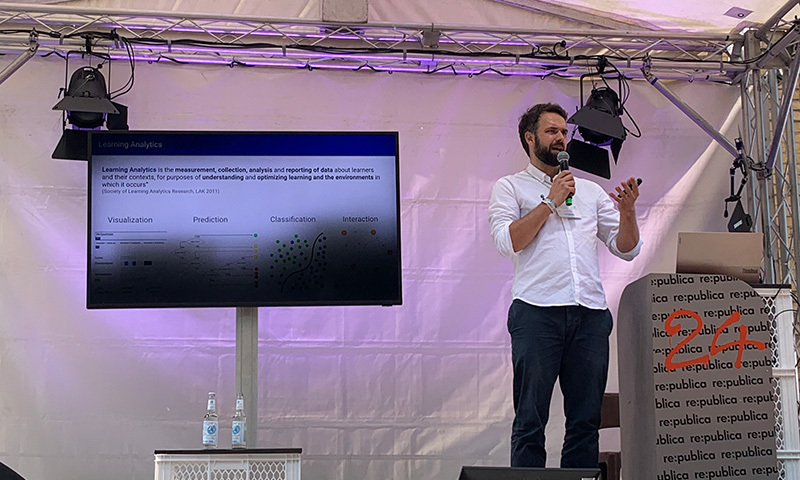 Photo: Privat
Photo: Privat
This was the title of Dr. Niels Seidel's presentation at re:publica 24. He is drawing attention to a field in the field of learning analytics that has received little attention to date. Up to now, teachers have seen data traces of their course participants, but students hardly see anything of how teachers perform their teaching tasks in an online course. What would this new approach mean in practice?
10.06.2024
Multitasking and multimedia - Fang Zhao received Venia Legendi
 Photo: Peter Cade/Stone/Getty Images
Photo: Peter Cade/Stone/Getty Images
In her habilitation, Dr. Fang Zhao investigated how multitasking and multimedia affect learning. Her aim is to design learning environments for successful learning.
16.05.2024
CATALPA Junior Researchers: Clever publishing - but how?
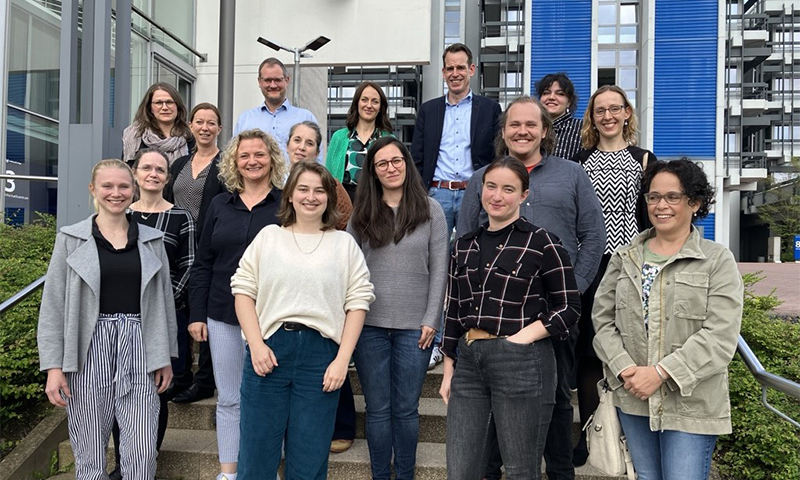 Photo: CATALPA
Photo: CATALPA
Publications were the focus of the self-organized CATALPA Junior Researcher's Day on 8 May 2024. Professors from educational science, psychology and learning analytics gave tips from their wealth of experience, and an employee of the university library was also a guest. The event concluded with a workshop with external moderation.
10.05.2024
CATALPA's Scientific Advisory Board met in Hagen
 Photo: CATALPA
Photo: CATALPA
Good progress looking at publications and structural development - the CATALPA Scientific Advisory Board has given a positive assessment of the research center's development. The international committee met for the fourth time and was satisfied with the way things are working out. Nevertheless, there are still plenty of tasks and new goals.
19.04.2024
AI experimental environment for innovative teaching and learning
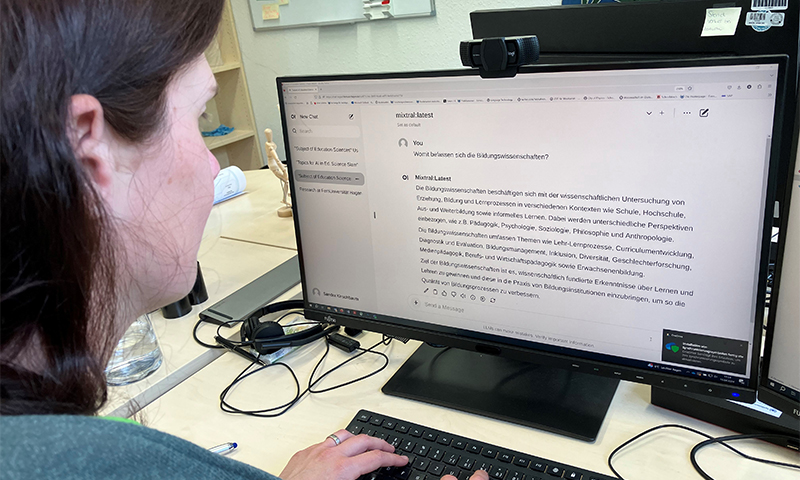 Photo: CATALPA
Photo: CATALPA
Access many different AI tools directly from Moodle: The FernUni strives to enable this with a new experimental environment. AI chat on study content, integration of AI-generated images, personalized learning support: these are just three examples of new learning scenarios which become a reality with the experimental environment. Several researchers from CATALPA are currently working on this project.
16.03.2024
Conference on academic success and dropouts
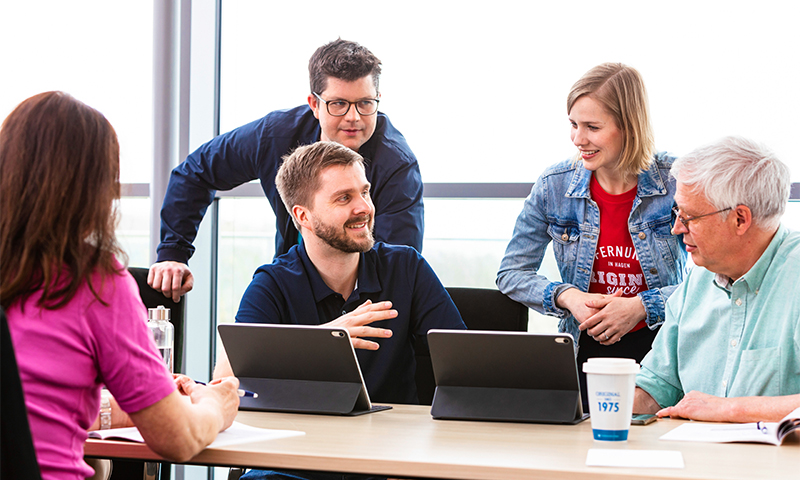 Photo: Hardy Welsch
Photo: Hardy Welsch
What leads to academic success and graduation in digital studies? Who drops out - and who sticks with it? A digital science conference has now addressed questions like these. It was organized by the team of the CATALPA-associated project LAMASS@DiLea.
04.03.2024
Reach the full potential
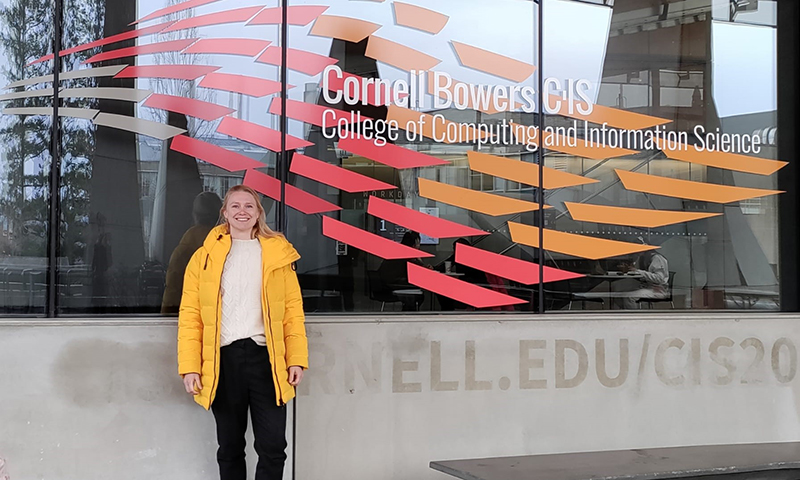 Photo: Privat
Photo: Privat
Which interventions help to reduce the consequences of negative prejudices against certain student groups and thus increase their chances of success? CATALPA junior researcher Nathalie Bick is currently investigating this question at an Ivy League college.
01.03.2024
Learning analytics: "Students need to see the benefits"
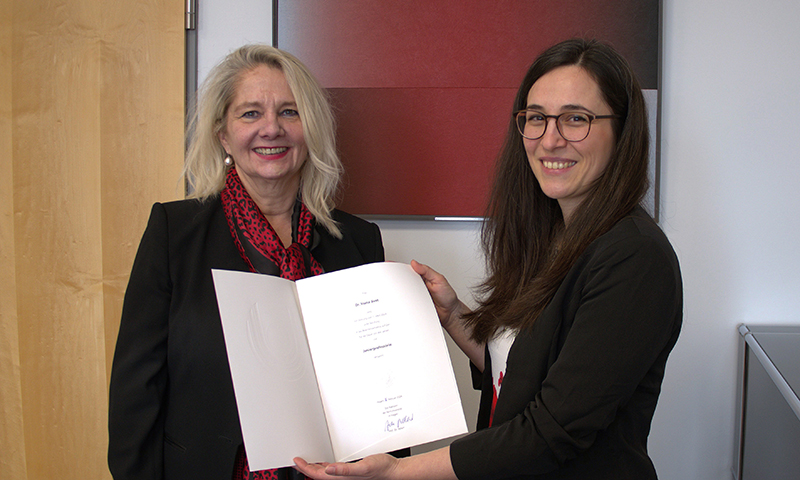 Photo: CATALPA
Photo: CATALPA
Creating added value for individual students from learning data of many - that is the goal of Ioana Jivet. She is the new research professor at CATALPA since March 1st. In the Faculty of Mathematics and Computer Science at the FernUniversität in Hagen, she will supervise final theses and offer courses on educational technologies.
15.02.2024
Study success through digitalization?
 Photo: Adobe Stock
Photo: Adobe Stock
Does digitalization make courses more attractive? What influence does it have on academic success? And how can personalized learning opportunities reduce drop-out rates? Questions like these will be addressed at the digital science conference on March 14 from 11 a.m. to 5:15 p.m., hosted by the LAMASS@DiLea project associated with CATALPA.
15.02.2024
Launch of MULTIDIVERSE-CSCL
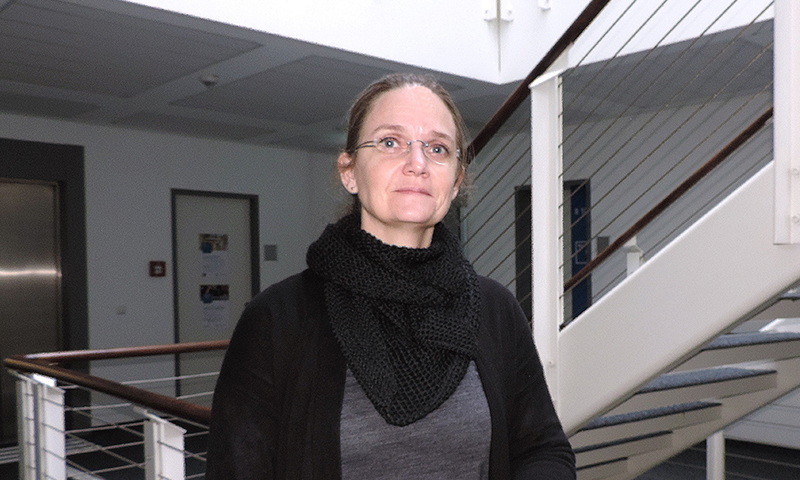 Photo: CATALPA
Photo: CATALPA
How can we counteract stereotypes in virtual study groups in a meaningful way and thus strengthen the sense of community among students? This is the focus of the project "MULTIDIVERSE-CSCL - Explaining and managing effects of multi-attributional diversity in Computer-Supported Collaborative Learning". Jennifer Hochstein (photo) is a member of the DFG-funded research project.
14.02.2024
Open positions in Learning Analytics
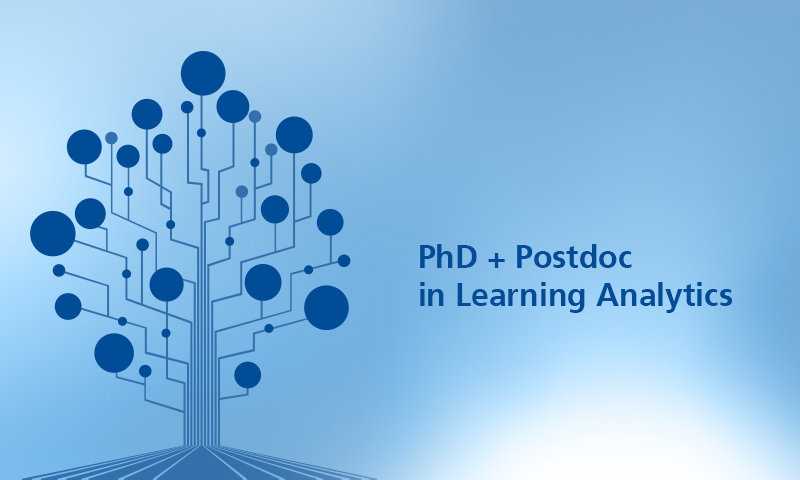 Photo: CATALPA
Photo: CATALPA
The newly established research professorship is looking for a PhD student and a Postdoc in Student-Facing Learning Analytics. The position requires a master's degree in either Computer Science, Data Science, Educational Technology, Artificial Intelligence, Human-Computer Interaction, Educational Science, or another relevant field. We look forward to receiving applications by June 21, 2024.
08.02.2024
Give my doctoral thesis more depth and relevance
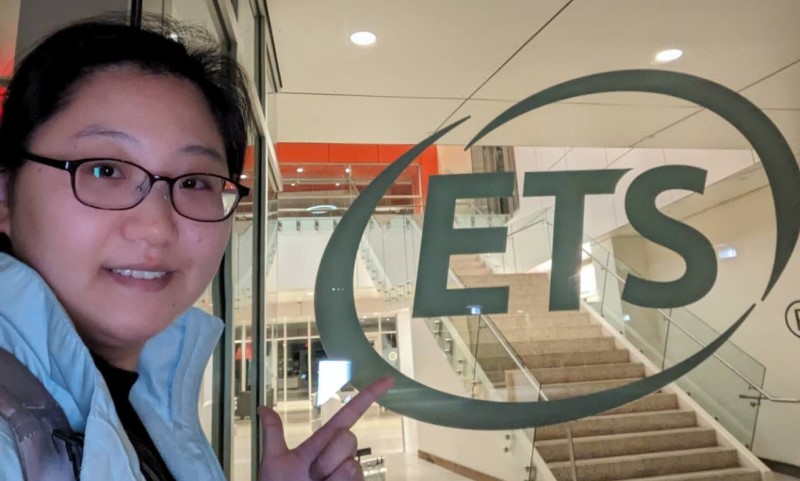 Photo: private
Photo: private
How can argumentative essays be evaluated automatically? Doctoral student Yuning Ding is devoting her research to these questions. She recently traveled to Princeton to work with experts from ETS. Let's take a look at Yuning at our leisure.
06.02.2024
A new AI tool against online hate
 Photo: Hendrik Schipper
Photo: Hendrik Schipper
A better and safer Internet - that is the goal of Safer Internet Day on February 6. A project by computational linguist Prof. Dr. Torsten Zesch fits in with this: with his help, a new AI tool was developed that recognizes criminal hate messages from social media posts. The tool is intended to facilitate the work of law enforcement authorities. The aim is to detect crimes much more quickly and thus combat crime more effectively.
18.01.2024
New project DECIDE picked up work
 Photo: CATALPA
Photo: CATALPA
Under which circumstances is choice beneficial for students and under which circumstances can it be detrimental? Our scientists adress this research question in the context of new research project DECIDE. They explore the consequences of choice in the context of distance learning and take student diversity into account.
20.12.2023
CATALPA junior research group "Stereotype Threat" convinces reviewers
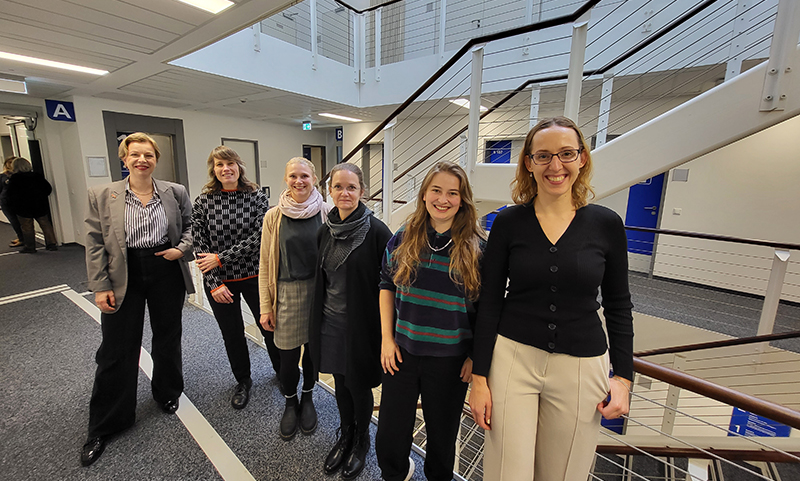 Photo: CATALPA
Photo: CATALPA
The junior research group "Stereotype Threat" under her leadership convinced the external reviewers in the interim evaluation. And today, Laura Froehlich received her habilitation certificate at the Psychology Faculty Council meeting.
18.12.2023
IMPACT: Network meeting and new AI guidelines
 Photo: CATALPA
Photo: CATALPA
Five universities, four federal states, one common goal: to improve higher education through the use of artificial intelligence and trusted learning analytics. The project partners from Frankfurt, Berlin and Bremen met in Hagen for a hybrid exchange at the halfway point of the IMPACT project.
13.11.2023
International expert panel for AI.EDU-Usecase
 Other: Busakorn Pongparnit/Moment/Getty Images
Other: Busakorn Pongparnit/Moment/Getty Images
From Australia to China and Siegen to the USA - at the first workshop on "Recommender Systems in Education", Prof. Dr. Claudia de Witt and Prof. Dr. Niels Pinkwart from the AI.EDU Research Lab 2.0 invited international experts to exchange ideas.
09.11.2023
Meet CATALPA: Adaptive learning tailored to students with APLE II
 Image: CATALPA
Image: CATALPA
Learning platforms such as Moodle can provide very large cohorts of students with learning material and tasks. But how can these learning platforms really support students in their learning? In the CATALPA project APLE II (Adaptive Personalized Learning Environment II), Niels Seidel and his team are investigating which AI-based tools are most helpful here.
05.10.2023
New results from our InterMINT project

One conference, double output - Judith Sarah Preuß placed second in the Best Poster Award at theGender & STEM Conference 2022 last year, and now a new paper appeared in a special issue that followed the conference. Her research has focused on international students and women in STEM fields, among others.
25.09.2023
New task force on AI in NRW education
 Other: Yuichiro Chino/Moment/GettyImages
Other: Yuichiro Chino/Moment/GettyImages
What opportunities does AI offer for the education sector? What are the risks of use? And how can politics promote the productive and trustworthy use of AI tools? Questions like these are being addressed by a newly formed task force made up of academia, practitioners, and several NRW state ministries. CATALPA provides two of the members.
31.08.2023
Framing for the best posters
 Photo: CATALPA
Photo: CATALPA
Making good research visible - that is what CATALPA has set out to do. And framing it in the literal sense, too: As of now, the research center is exhibiting a small sample of it - namely, posters that have been awarded a prize. The first poster is by Franziska Wehrhahn. For her work on "Balancing autonomy and guidance in online learning" with Robert Gaschler and Fang Zhao, she received the "Best Poster Prize" at the ESPLAT educational psychology conference in Umeå, Sweden.
25.08.2023
Objective: AI Skills for Everybody
 Photo: CATALPA
Photo: CATALPA
How can artificial intelligence be effectively integrated into university teaching? This is what CATALPA executive board member Claudia de Witt is addressing in the "AI Campus 2.0" project. Together with her team, she organizes so-called Open Think Tanks, in which interested parties work on solutions for AI in higher education. The "AI Campus" is funded by the German Federal Ministry of Education and Research (BMBF).
25.08.2023
First Professorial Appointment for Researcher from CATALPA
 Photo: Henrik Schipper
Photo: Henrik Schipper
Since the beginning of April this year, CATALPA member Andrea Horbach has been the new assistant professor for digital humanities at the University of Hildesheim. She is the first CATALPA junior researcher to have been offered a professorship. After spending a few weeks settling in, the researcher is already working on new project ideas. The computational linguist will remain with our research center as head of the EduNLP junior research group. In this interview, she talks about her first months in her new job.
24.08.2023
New Deadline: Education in Times of Crises and Transformation
 Other: Andriy Onufriyenko/Moment/GettyImages
Other: Andriy Onufriyenko/Moment/GettyImages
Educational organizations in times of multiple crises: Covid, climate, wars - what do all these developments mean for educational institutions? And what role do educational technologies play for schools and universities in this context? A workshop at the congress of the Swiss Sociological Association will address these questions. The deadline for submissions has been extended to January 15, 2024.
23.08.2023
Open Call: Forging Resilient and Creative Universities (extended deadline)
 Illustration: HIIG
Illustration: HIIG
How will educational technologies redefine universities? Can they empower institutions to weather storms of change? How can resilient universities be built that are better equipped to thirve in uncertain times? The ORC project aims to get to the bottom of these questions. CATALPA and the Alexander von Humboldt Institute for Internet and Society (HIIG) are looking for interested study programs to participate. The deadline has been extended to December 15th.
10.08.2023
Social identity and its significance in studying
 Photo: CATALPA
Photo: CATALPA
To which social groups do FernUni students feel they belong? Which stereotypes and prejudices towards their own group do they anticipate? And to what extent do both affect their behavior towards peers? CATALPA member Nathalie Bick presented recent research results at the "General Meeting of the European Association of Social Psychology" (EASP) in Krakow.
31.07.2023
Computational Linguistics: About Orthographic Errors and Effective Arguments
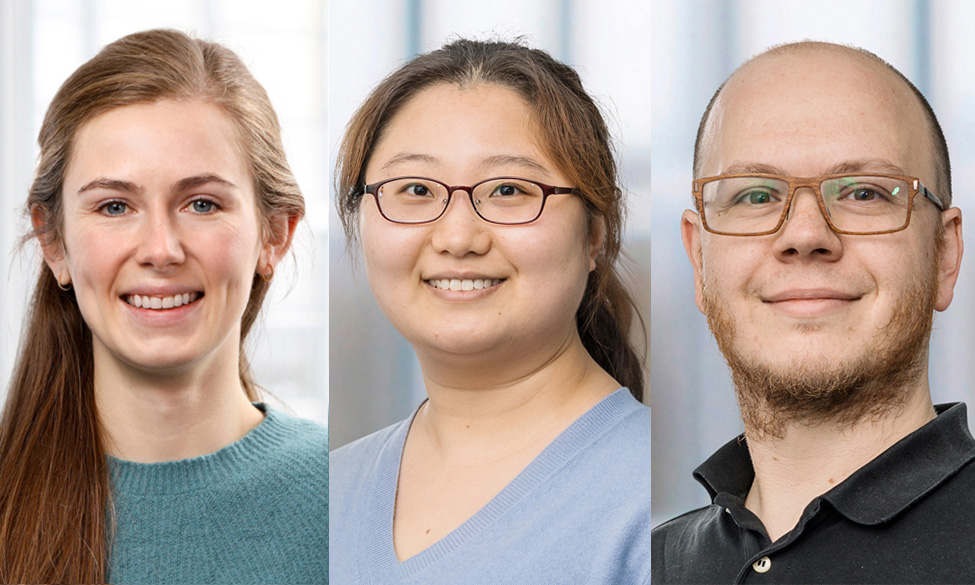 Photo: Hendrik Schipper/Hardy Welsch
Photo: Hendrik Schipper/Hardy Welsch
Automatic scoring and handwriting recognition in learners' freely written texts - these are the topics on which four papers from the CATALPA Research Professorship in Computational Linguistics and the EduNLP Junior Research Group were accepted at ACL 2023 in Toronto. The "Annual Meeting of the Association for Computational Linguistics" is one of the most important conferences for researchers in this field.
20.07.2023
Digital higher education topic in the Parliamentary Advisory Board
 Photo: CATALPA
Photo: CATALPA
Creating the basis for more educational equity through AI-based technology: This goal was presented by Prof. Dr. Dr. Friedrich W. Hesse together with Rector Prof. Dr. Ada Pellert to members of the Bundestag in Berlin. The CATALPA research center and its special role as a living lab for university research were the central topics in the Parliamentary Advisory Board of the FernUniversität.
07.07.2023
CATALPA Day: Insight into the scientific "engine room"
 Photo: CATALPA
Photo: CATALPA
"What do they actually do at CATALPA?" - This question was answered by the research center at its CATALPA Day with a mix of overview and illustrative examples. The Scientific Director Prof. Dr. Dr. Friedrich W. Hesse as well as Prof. Dr. Claudia de Witt, Prof. Dr. Torsten Zesch and Dr. Niels Seidel offered an insight into the "engine room" of their research.
09.06.2023
Junior Researchers Day focuses on interdisciplinary work
 Photo: CATALPA
Photo: CATALPA
"Problem Solving and Collaboration in Interdisciplinary Teams" - this was the main topic at the CATALPA Junior Researchers Day 2023. Together with an external speaker, there was a day of input and exchange on this topic for the junior researchers at CATALPA.
07.06.2023
Scientific Advisory Board: Quality assurance for CATALPA
 Photo: CATALPA
Photo: CATALPA
Where is CATALPA on a good path? Where and how can the research center become even better? Recently, the Scientific Advisory Board of CATALPA met in Hagen. The goal was quality assurance: The international and interdisciplinary board advises the institution with regard to research planning, but also in its structural development.
05.04.2023
Guest lecture “From the Engine Room of a Learning Analytics Project” (Prof. Dr. Dirk Ifenthaler)
 Photo: Anna Logue
Photo: Anna Logue
We cordially invite you to a guest lecture by Prof. Dr. Dirk Ifenthaler, Chair of Business Education - Learning, Design & Technology at the University of Mannheim, UNESCO Deputy Chair on Data Science in Higher Education Learning and Teaching Curtin University and member of CATALPA´s Scientific Advisory Board.
Termin: Thursday, Mai 4th, 17:15-18:15 / Campus FernUniversität, building 3, Room D005/006
For abstract, key references and short bio click here (PDF 105 KB)
03.04.2023
CATALPA-Day
 Illustration: FernUniversität
Illustration: FernUniversität
CATALPA cordially invites anyone interested to an afternoon where you can gain insight into our scientific "engine room" and we can exchange ideas and network.
We are also very much looking forward to a guest lecture by Prof. Nikol Rummel, Head of the Educational Technologies and Artificial Intelligence Research Program at CAIS - Center for Advanced Internet Studies.
When: Wednesday, May 24, 2 p.m. to 6 p.m. (including get-together starting at 5 p.m.). / Building 3 / Ellipse
Program:
Please note: lectures will be held in German.
14.00 Welcome by Prof. Dr. Dr. Friedrich W. Hesse, Scientific Director of CATALPA.
14.15 h Current status and insight into the "engine room
15.45 h Discussion and exchange in small groups
16.15 Guest lecture Prof. Nikol Rummel, CAIS: "Cooperative Learning in Computer Supported Learning Settings: Support for Learners and Teachers".
From 5 p.m. Get-together with drinks and snacks.
Registration is not required.
Please note: During the event, photos and films will be taken for an image film.
02.04.2023
Organising digital change at the university: new field guide for implementing educational technology
 Photo: HIIG
Photo: HIIG
The online resource presents research-based recommendations and examples for effective implementation of educational technology in higher education. The Practitioners' Field Guide for Implementing Educational Technology is intended for university leaders and administrators, faculty, and technical staff. It was developed in a collaboration between CATALPA and the Alexander von Humboldt Institute for Internet and Society (HIIG).
12.12.2022
Making a difference for university teaching with research
 Photo: Open Universiteit
Photo: Open Universiteit
Whether it's excellent papers, a theses, special presentations, or simply exciting new findings - we are pleased with our members for their successes. Slavisa Radovic (PhD), for example, showed with his dissertation how digital teaching can be better supported in practice. His goal: to make a difference for better studying.
Can an Artificial Intelligence be a Lecturer?
 Photo: Henrik Schipper
Photo: Henrik Schipper
At the "Day of Computational Linguistics" on November 17, CATALPA researchers demonstrated: Automated solutions offer lots of potential for universities. Members of the research center and the university public were invited to try out and discuss for themselves. Core question of the scientists: How can we free up more time for teachers and at the same time better support students in achieving their learning goals?
A highly relevant question, because: The number of students has been increasing for years. In the winter semester 2020/21, almost 3 million people were studying in Germany. This means that the number of students has increased by 63.6 percent in 20 years (source: Federal Agency for Civic Education*). At the same time, teachers at universities have to supervise the large number of students, prepare lessons, develop exercises, provide the most helpful feedback possible to students, conduct exams, and much more.
The researchers of the new research professorship Computational Linguistics under the direction of Prof. Dr.-Ing. Torsten Zesch at CATALPA as well as the CATALPA junior research group "Educational Natural Language Processing" around Dr. Andrea Horbach are exploring ways to support university teaching with digital solutions. In nine different demo stations, visitors were invited to try out what this might look like.
Reading and describing graphics
At Marie Bexte's station, for example, the focus was on automatic evaluation of image descriptions. Visitors were shown images on a large screen and asked to type in what they saw here. With a click, the program generated direct feedback as to whether the answer was correct or not, and issued sample answers that it would have rated as correct. What could such an application be used for in higher education? "For example, to describe infographics," the doctoral student explains. "So students could practice reading them and get direct feedback as part of their practice."
Insights from other fields for advances in application
What exactly helpful feedback looks like, which images or graphics are selected for exercises, or at what point in the course exercises are incorporated - these are all insights that the researchers work on best in interdisciplinary cooperation with, for example, psychologists or educational scientists. "That's why this active exchange is important to us, which we encourage here and for which we find the ideal conditions within CATALPA," explains Torsten Zesch.
Immediate feedback for texts
Writing a text for a French exercise and seeing directly whether the length, vocabulary or the number of adjectives used are in a good range? In this way, students could better assess and improve themselves in foreign language learning. Jeanette Bewersdorff explains: "Our software recognizes word and sentence components, evaluates them and can compare them with the data of other students. This makes it possible for learners to see where they stand in comparison."
Recognizing handwriting, saving time
And what about the aforementioned relief for teachers? Christian Gold is working in an exciting area here. He teaches software to read handwriting. For lecturers, deciphering spidery handwriting before they can even start evaluating the content would thus become a thing of the past. But of course there are hurdles to overcome before a computer can reliably convert handwriting into computer writing. It takes more than just many examples to let the software learn from. Even guides can greatly affect the reliability of the results during automatic recognition. Lots of small steps, then, for researchers to take. "The goal, of course, is to eventually have a system that can be used as plug-and-play as possible for a wide variety of tasks and purposes while delivering very accurate results. But there is still a long way to go until then," Christian Gold tells us about his work.
Trust and acceptance
For automation to get better in these areas, more data is needed. Artificial intelligence is still too unreliable for small groups, such as course with 30 to 50 learners. Science in the critical area of teaching and learning is and will therefore always be a balancing act: collecting and using data - but under strict data protection criteria, driving forward automation and digitization - but not as an end in itself, but as an application-related aid for students and teachers.
"Trust and acceptance are important currencies for our work and despite all scientific curiosity, data security is a basic requirement for all projects," explains Prof. Dr. Dr. Friedrich Hesse, head of the research center. (23.11.2022)
More about the Chair of Computational Linguistics
More about the junior research group Educational Natural Language Processing
Research to try out
 Photo: CATALPA
Photo: CATALPA
The first year at CATALPA and thus at the FernUniversität in Hagen is slowly coming to an end for the new research professorship and junior research group in computational linguistics. A good opportunity to give the other members of the research center, but also interested people of the FernUni an insight into the work.
That is why Prof. Dr.-Ing. Torsten Zesch and Dr. Andrea Horbach together with their teams are organizing the Computational Linguistics Day on November 17 in room Geb. 3, IZ, Ellipse.
From 10:30 to 11:00 am, an introductory lecture will introduce the world of computational linguistics. Between 11:00 am and 12:15 pm, the scientists have set up various stations for you to try out and listen to. Interactive exhibits will give you an idea of the possible applications of computational linguistics. Finally, from 12:15 pm to 13:00 pm, three keynote lectures will give an outlook on new application areas that are currently being researched.
The Research Center asks non-members of the Research Center to register, as space for the Computational Linguistics Day is limited. So please register at catalpa if you are interested.
CATALPA is looking for reinforcement
 Photo: CATALPA
Photo: CATALPA
Our research center is constantly growing. With another professorship in the field of learning analytics, CATALPA invites scientists to conduct research with interdisciplinary colleagues for the higher education of the future.
- Excellent research conditions at Germany's largest distance learning university.
- A diverse student body. The opportunity to conduct research with direct application.
- An interdisciplinary team and active exchange.
With these prerequisites, our research center would now like to establish another research professorship and is looking forward to receiving applications. The call for applications is open until December 12.
Promotion is part of our identity
The special feature of the call for applications is that the junior professorship is not only characterized by the tenure track to a W3 position, but can also lead directly to the filling of a W3 professorship if suitable applications are received. "For CATALPA, supporting junior researchers is part of our identity and we would like to address them with this call for applications in the field of Learning Analytics. Nevertheless, we also have the possibilities to fill this position directly as a W3 professorship," explains administrative director Stephanie Steimann. "We are therefore particularly looking forward to applications that can identify with our mission statement and want to grow together with us."
(Vacancy is no longer available.)
Meet CATALPA: Fang Zhao and her junior research group Multimedia
 Photo: 10'000 Hours/DigitalVision/GettyImages
Photo: 10'000 Hours/DigitalVision/GettyImages
What is the Multimedia junior research group researching? What are the female scientists currently tinkering with, and how did they actually get involved with CATALPA? In our "Meet CATALPA" series, we introduce our researchers and their work. For the Multimedia group, science communicator Sandra Kirschbaum spoke with junior research group leader Dr. Fang Zhao and her doctoral student Franziska Wehrhahn.
Sandra Kirschbaum: Fang, as a linguist, how did you come to do your research on multimedia content?
Fang Zhao: During my PhD at the University of Koblenz, I researched how children learn with texts and images. Texts and images have different functions for learning. Texts, for example, serve more for learning new content, while pictures support more for remembering. At that time, using eye tracking patterns, we found that children from different types of schools read differently. All children pay attention to the pictures first. Students from High School look at the pictures longer than students from other secondary schools.
Sandra Kirschbaum: And after your doctorate, did your path lead to Hagen?
Fang Zhao: Exactly. In Hagen, I was hired as a postdoc. My topic then changed a bit and we studied multitasking. As part of various studies, we had people do things at the same time and then compared them: Do the multitaskers or the singletaskers learn better? When two tasks overlap, reaction time gets slower and people do worse overall. It is better to do tasks one after the other. Within the framework of what was then still D²L², I then started as a junior research group leader shortly afterwards, and our topic is a mixture of my PhD and postdoc topics. In the area of interactive learning, for example, we give our students two tasks as part of an interactive learning platform. One involves reading what's on there, for example. In addition, students are asked to interact, for example, with simulations. We are investigating how people learn under these conditions and what conclusions we can draw to make the learning environment better.
Sandra Kirschbaum: Franziska, you work closely with Fang as a PhD student. How did you get involved with CATALPA (formerly D²L²) and what is the focus of your research in your junior research group?
Franziska Wehrhahn: I did my master's degree in education at FernUni. There I looked at the topics of education and media in an empirical project. Questions we investigated included: How do people learn in groups and with what motivation? What does motivation look like in different learning contexts? We're looking at that for multimedia learning settings as well. As part of my doctoral work in Fang's junior research group, one of the things I'm investigating is the use of images. For example, models and graphical representations are used differently than, say, a picture of a laughing learning group, which might have more of an affective or emotional effect. So images have different functions that promote learning and can even be disruptive factors that, in the worst case, hinder learning. We are looking at this in particular for the Moodle learning environment, which is relevant for many students because they interact with it on a daily basis. Hopefully, the results will help us to design this learning environment piece by piece in such a way that it works best for students and supports them effectively in their learning.
Sandra Kirschbaum: What have you been able to find out so far? What is useful for learners? What should instructors keep in mind?
Fang Zhao: An example from the Corona period: there were, after all, daily updates on infection numbers, hospital admissions, and so on. Often you could click through the time scale and the graph would change accordingly. That's an interactive data graph. With graphics like this, as we were able to show in another context, it's important not to include other requirements and overload viewers. Only one thing should change that the viewer can also focus on.
Sandra Kirschbaum: Does this also apply to other learning formats?
Fang Zhao: Yes, in one project, for example, we looked at how interview videos should be designed and saw that it's better for learning interviews if you exclude the interviewer, for example, edit out of the videos and just fade in the questions. Because that way learners are less distracted by another visual stimulus and learn better. By the way, this also applies to Zoom meetings or courses via Zoom. The video should only be on for the speaker, off for everyone else. This reduces distraction and promotes better learning.
Franziska Wehrhahn: Such findings are particularly important for teachers, because they can design learning materials and environments accordingly.
Sandra Kirschbaum: Are there also examples where a combination of text and images work better?
Fang Zhao: We have a paper in review right now about learning motivation. As part of a study, we sent students an email every week about their course and their learning. In the emails, they were told, for example, how many units they had completed and additional motivational words if necessary. The students were divided into four different groups, one group each that:
- No emails (control group),
- general emails,
- personalized text e-mails
- or received personalized text-image emails.
Here, we found that the combination of text and a data graphic indicating how far along you are in the course had a positive effect on student success. General emails or text-only emails showed no significant difference from the control group.
Sandra Kirschbaum: What would you like to see emerge from your research results in the future?
Franziska Wehrhahn: Many things in teaching are currently still designed intuitively - for example, the use of images on Moodle. In order to support teachers here, to make multimedia learning better, results from research would have to be systematically compiled and made available to teachers so that this knowledge and the results can be systematically incorporated into teaching. This would lead to a more targeted use of multimedia learning. We are contributing to this step by step with our findings in the project.
Fang Zhao: To some extent, we are already starting to put our findings into practice even better. In a cooperation with the Center for Learning and Innovation and the Chair of Psychological Methods and Evaluation of Prof. Dr. Oliver Christ, there is already a first concrete project for the teaching area of statistics. Here, however, we are still in the early stages. (12.10.2022)
19 Experts for Automatic Scoring Came to Hagen for Research Symposium
 Photo: CATALPA
Photo: CATALPA
The CATALPA Research Professorship of Computational Linguistics and the CATALPA junior research group EduNLP organized a symposium on "The future of scoring natural language student output" at the FernUniversität in Hagen on September 27th and 28th. They brought together experts from application and development in the field of automatic scoring. The common goal: to bring together a panel from as many different disciplines and perspectives as possible.
After all, all participants should benefit from the exchange in the long term. "For this first meeting of experts from all over Germany, we chose the topic of automatic scoring and focused on linguistic data - more precisely - on the automatic evaluation of free-text answers. Free text includes not only written, but also spoken language," explains Prof. Dr.-Ing. Torsten Zesch, Head of the Computational Linguistics Research Professorship at CATALPA.
There is often an imbalance in the field of automatic scoring. On the one hand, there are practitioners who have large data sets at their disposal, but not always the technological possibilities to fully exploit the potential of the data. On the other hand, developers with the right tools often lack access to large data sets to refine or scale their technology. "The symposium was very successful in bringing these two groups together. A good half of the guests were computational linguists. The other half was made up of, for example, people involved in teacher training, psychologists who use automated scoring in school contexts, or educational scientists who work with artificial intelligence in higher education," reports Dr. Andrea Horbach, junior research group leader at CATALPA.
Key points for the future
In addition to kick-off talks from the guests, the participants worked out the topics on which they are seeking and offering expertise - and were able to identify some key points for the future. Andrea Horbach summarizes the three points like this:
Feedback. "For many of us, the key next step is: How can we meaningfully communicate the results of automated assessment to teachers and learners? How can we generate feedback that helps teachers and learners move forward, and what exactly would that feedback need to look like? That's a main challenge right now."
Individualization. "Another important question on many of our minds: How do you get targeted feedback that's right for the individual at the right time?"
Transferability. "This refers to the scalability of technical solutions to use cases. Scoring models are often developed for specific tasks only. But the goal is that users are able to transfer technology to new courses and tasks easily."
Kick-off for further collaboration
After two days of collaboration, the participants concluded: the actual exchange is only getting started. Especially for the participants at the level of post-doctoral researchers and PhD students, being able to get in touch with the community in real life was particularly valuable after the pandemic. (04.10.2022)
CATALPA Young Researchers' Day - "Impressed by what has been set up here"
 Photo: CATALPA
Photo: CATALPA
26.09.2022 | CATALPA junior researchers met for the first network meeting. The program was created by young researchers for young researchers, including a poster session that promoted exchange among each other and with the management team.
What exactly do my colleagues deal with? What are they interested in and aren't there perhaps overlapping topics and could we benefit from each other? Driven by these questions, the young scientists of CATALPA organized a network meeting on their own initiative, which brought together 24 doctoral students and post-docs for a joint working day. In a protected and internal setting, there was to be an opportunity to get to know each other, to practice presenting, and also to learn about the university's offerings, such as the Graduate Service.
Presenting in a protected setting
The day started with a very special poster session. Unlike traditional scientific posters, the focus was not only on research questions and results. With the categories "I'm looking for" and "I'm offering," the docs and postdocs also opened up a small exchange forum for knowledge. "This opened up the space for us to exchange. We are, after all, an interdisciplinary research center, and so we can benefit in a very special way from the different expertise of our colleagues. To do this, however, it is important to know each other better, also on a personal level. That breaks down the barriers of simply calling each other or getting together over a cup of coffee," says Dr. Natalia Reich-Stiebert, who was involved in organizing the day.
Management team was impressed
Afterwards, the leadership team invited for this part of the networking day was enthusiastic about the quality and ideas they got to see during the poster sessions. "I am really impressed by what has been set up here - not only because I was able to look deeper into the individual research work, but also because each and every one contributed a personal touch of themselves with additional profiles," praised Prof. Dr. Dr. Friedrich Hesse, Scientific Director CATALPA, at the evening get-together. For colleagues and many new faces at the research center, this provided numerous starting points for active networking.
From impostor to speed dating
During the course of the day, the Graduate Service also presented the topics and questions that scientists can find a contact point for here. The workshop offered by the Graduate Service on Imposter Syndrome was particularly well received. Here, the focus was on attributing successes more to one's own abilities and accepting them, instead of thinking they are lucky circumstances. In the final warp conference, a kind of speed dating for professional exchange, the researchers then worked in small groups to determine where they could and would like to benefit from each other in the future.
The day was so well received by all participants that it will become a permanent format of the research center. In the future, the CATALPA Young Researchers' Day will also be open to interested parties from the FernUni and will be further expanded.
International conference contribution to programming education
30.08.2022 | From 08 - 13 July 2022, the 27th Annual Conference on Innovation and Technology in Computer Science Education (ITiCSE) took place in Dublin, Ireland. Researchers from the completed project "Permeability" (then under D²L²) presented their findings on programming education here.
Carsten Thorbrügge, research associate at the Department of Software Engineering and Theory of Programming (Univ.-Prof. Dr. Jörg Desel) presented together with Dr. Natalie Kiesler from the Leibniz Institute for Educational Research and Information in Frankfurt (DIPF) their comparative study on vocational and university programming education.
International forum for discussion on computer science education
The high-level event organized by the Association for Computing Machinery (ACM) provided an international forum to discuss important issues in computer science education related to the development, implementation, and assessment of degree programs, courses, and didactics. The special situation of the German education system described in the study also attracted interest.
Equivalent programming skills
Following the CATALPA permeability project, the researchers identified the competencies expected in German vocational and university programming education. They compared these and assessed them for equivalence. It turned out that there is a great deal of overlap in programming skills despite the different goals of the two educational systems. While university teaching focuses more intensively on software quality assurance aspects, vocational training gives more space to dealing with customers.
The lessons learned can be used to improve permeability and recognition practices in both vocational education and higher education.
This plays an important role in the context of lifelong learning and diverse educational biographies due to the lack of common assessment strategies for recognition.
The methodological approach has included the analysis of frameworks and competency models of computer science education as well as empirical data from interview studies in order to develop a corresponding comparison procedure and a common competency matrix.
Meet CATALPA: Andrea Horbach and her junior research group EduNLP
 Photo: Anyaberkut/istock/Getty Images
Photo: Anyaberkut/istock/Getty Images
18.08.2022 | What is the EduNLP junior research group investigating? What are the researchers currently working on and how did they actually come to CATALPA? In our series "Meet CATALPA" we introduce our researchers and their work. We start with the junior research groups. For the EduNLP group, science communicator Sandra Kirschbaum spoke with junior research group leader Dr. Andrea Horbach and her doctoral student Yuning Ding.
Sandra Kirschbaum: Andrea, for those of us who are new to the area of computational linguistics, can you first give us a summary of what the discipline deals with?
Andrea Horbach: In a nutshell, we work on the computational processing of human language. It's like this: When we, for example, talk to each other, write e-mails or speak on the phone, we understand each other quite well. But that is nothing we can take for granted. Consider, for example, the sentence "The detective was chasing the gangster in the sports car." If I asked you who was in the car, what would you answer me?
Sandra Kirschbaum: It could be the detective, but it could also be the gangster.
Andrea Horbach: Exactly. And that's often the case with language. There are several possibilities, but we usually still understand the sentence quite well. But the thing is: You came up with two possibilities because you know the average size of a person and that of a car, and how much space two people need to chase each other. The computer, which may not have this knowledge, could also come up with the following interpretation: Both are in the car together and that is where the pursuit takes place. When we as humans interpret language, there is always a lot of knowledge about the world involved.
Sandra Kirschbaum: What specific question is your junior research group dealing with?
Andrea Horbach: We are specifically interested in how to support teachers and learners by automatically evaluating texts written by learners. Our two classic application areas are essay scoring and short answer grading. The big difference between these two areas is that in Short Answer Grading, we want to assess learners' knowledge in terms of content. I.e., we look at whether the answer is conceptually correct. In Essay Scoring, we're looking not only at content, but also at linguistic aspects, like structure, grammar, vocabulary, and so on. The goal is to score that automatically and give feedback that is more specific than just assigning a number of points. This includes, for example, an explanation along the lines of: You are missing points in your argumentation score because your essay does not have a conclusion.
Sandra Kirschbaum: What aspects can this feedback be related to?
Andrea Horbach: One very specific aspect that Yuning has been working on over the last few months, and on which we recently published our paper, is the structure of argumentation in argumentative essays. Based on a large essay corpus, we have learned how to apply automatic recognition of argumentative elements, such as the position of the writer, to new texts, so that we can identify these elements in a new essay on a different topic. The idea is that you can tell learners: We didn't find a position of your own in your essay, check if there might be something missing. So we don't want to just give a grade, but ideally provide didactically plausible feedback from which learners can take something away for future assignments or improve the current assignment. This feedback goes strongly in the direction of explainability. "Explainable AI" is a hot topic for a reason. However, it can mean very different things. On the one hand, it can mean that an algorithm is understandable in itself. On the other hand, it can mean - and this is much more helpful in our context - that the feedback generated by the algorithm comes with an explanation.
Sandra Kirschbaum: Where are you currently in your research on explainability?
Yuning Ding: Andrea and I have been working on automatic scoring for quite some time. Right now, we've been focusing on meaningful formative feedback for a good six months. One important next step will be testing our findings in real-life settings with learners, but for this, our analyses need to become even more precise. Above all, we first need to determine tangible criteria in an interdisciplinary collaboration for what exactly constitutes good feedback.
| Andrea Horbach about her way to CATALPA |
|---|
| I studied computational linguistics in Saarbrücken. I have always been interested in the combination of language and computer science. In 2015, through my membership in the DFG network "INDUS" (Individualized Language Learning), I met Torsten Zesch, who was looking for a postdoc for a new project, and so I moved to the Language Technology Lab at the University of Duisburg-Essen a year later. When the offer came from CATALPA, at that time still D²L², it fit very well, because we had already developed more and more in the direction of application. That fell on fertile ground here in Hagen. |
| Yuning Ding about her way to CATALPA |
|---|
| I started as a student assistant in the Language Technology Lab and then wrote my theses with Torsten Zesch and Andrea. After graduation, I continued working on Short Answer Grading for a year. After that, I worked as a software developer for a year. When Andrea told me that there was an opportunity to continue work on essay scoring as a PhD student within her junior research group at CATALPA, I was immediately back on board. |
CATALPA: Research center on course for growth with new name
 Photo: Adyna/DigitalVision Vectors/Getty Images
Photo: Adyna/DigitalVision Vectors/Getty Images
12.08.2022 | If you want to help shape the future of higher education, you also have to focus on the technical possibilities. That's why D²L² is now becoming CATALPA. The research focus on digitalization, diversity and lifelong learning has evolved into a research center for adaptive learning technologies.
The research center makes it its mission to advance the higher education of the future. CATALPA is an acronym that stands for Center of Advanced Technology Assisted Learning and Predictive Analytics. In particular, the appointment of a dedicated research professorship for computational linguistics and another professorship announcement for the field of learning analytics illustrate this: The former research focus D²L² has outgrown its name. In addition, with the increasing networking of projects and strong junior research groups from psychology, computer science and educational sciences, the focus has developed strongly in terms of content and structure.
Three questions to Prof. Dr. Dr. Friedrich Hesse, Scientific Director CATALPA
 Foto: privat
Foto: privatHow did the idea for the new name develop?
"First of all, it crystallized more and more clearly in the last months: In terms of content, D²L² no longer fits our research subjects so well. The terms digitization, diversity and lifelong learning were too broad and imprecise for what we do here. The new research professorship in computational linguistics, but also our projects dealing with artificial intelligence in education and adaptive learning platforms, were no longer sufficiently well described by D²L². In addition, we now have 50 researchers working together across disciplines. With our size and expertise, we can certainly hold our own in the research world, which is why the term 'research center' is more appropriate than 'research focus'. Together with the management team, but also in individual discussions, we considered which elements should be included in a new name in order to convey our size, but also our stronger focus on content - Technology Assisted Learning and Predictive Analytics were elements that all members of our management team quickly felt comfortable with. In addition, the most diverse scientists at our center share common roots: the interest in creating the best possible conditions - for students and lecturers. So it's a fitting metaphor that CATALPA also stands for the so-called trumpet tree."
What makes FernUniversität in Hagen such a good research location for CATALPA's topics?
"A more diverse student body comes together at the FernUni than at presence universities. This makes it easier to study different learning characteristics and constellations. In addition, with over 70,000 students, there are opportunities to collect valid data through large samples. And finally, and this is highly relevant for our research center: Teaching takes place to a large extent supported by online tools. The FernUni offers the ideal breeding ground to develop strong roots for the higher education of the future. This is because, especially in the area of digital learning technologies that can adaptively adjust to learners and use artificial intelligence and predictive analytics to help teachers better adapt to their students, we find suitable structures for our research here."
What are the plans with CATALPA for the future?
"In terms of content, we are continuing on exactly the path we have now taken with the new name. We have already introduced processes for quality assurance that would also pass a test for federal-state funding for our institution and are now successively rolling these out. In addition, the new name is also our prelude to appearing more strongly in public. We want to put the topic of adaptive learning technologies more on the agenda and draw attention to relevant findings in the field."
Strong study from project DivAdapt
 Photo: gremlin/E+/Getty Images
Photo: gremlin/E+/Getty Images
09.08.2022 | The team of the already completed DivAdapt project at the Research Center for Adaptive Learning Technologies - CATALPA - achieved a success in June: Dr. Jan-Bennet Voltmer and his colleagues Prof. Dr. Stefan Stürmer, Dr. Natalia Reich-Stiebert and Jennifer Raimann published their paper titled: "The role of multi-attributional student diversity in computer-supported collaborative learning" in the highly ranked journal "The Internet in Higher Education".
In the paper, they describe their study of various diversity aspects of learning groups in computer-supported learning environments. The researchers examined how diversity affects group outcomes. They found negative effects on collaboration among sociodemographically diverse groups. When diversity in the experience (task-related diversity) of group members was added, the negative performance effect was amplified - diverse groups did not benefit from their diversity, but actually experienced a double disadvantage.
The study was conducted using path analyses at the group level. Students were given the task of summarizing a scientific article in group work. Jan-Bennet Voltmer and his colleagues then looked at the network data, which they received anonymously via a data trustee. This ensured data protection for the students. In the network data, the researchers were able to see how students connect and share with each other in their groups. In some groups they found a high level of integration (=interactions between many group members), while in other groups there were individual members who worked on their own or even entire groups that hardly interacted with each other.
Results
Overall, it could be stated: Unless explicitly directed, higher levels of sociodemographic diversity were negatively associated with structural interaction within the group. A lower degree of structural interaction, on the other hand, was associated with lower task-related cooperation and ultimately even with a poorer evaluation of group work by independent tutors. Task-related diversity had a reinforcing effect on this. Thus, if there were large differences in a group, e.g., in the experience of reading scientific articles, with online collaboration, or in prior undergraduate experience, this reinforced the negative association of sociodemographic differences with collaboration. With their study, the researchers of the DivAdapt project thus found a risk constellation that requires active intervention.
Further research
"Initial ideas for interventions can be derived from our study. However, before we can go further down the road, we first need to understand the underlying phenomena. This would require, for example, answering the question of where the interaction within the groups comes from," explains Dr. Voltmer. Only then would it be possible to investigate which interventions could be used specifically.
High quality
The study has two particular quality features: "First, the data sets we were able to use were very large. We had a huge sample of 1,525 students in 343 randomly assigned groups. That makes our conclusions robust. On the other hand, the reviewers explicitly praised the tangible results on diversity," reports first author Jan-Bennet Voltmer.
Learning Analytics at the FernUniversität - impulses from teachers and students in demand
05.08.2022 | The FernUniversität is currently working intensively on the framework conditions for learning analytics. Synergies of the projects IMPACT and NOVA:ea from CATALPA are used for this purpose.
The two projects have joined forces to consider expectations, but also concerns of lecturers and students as early as possible in the implementation of Learning Analytics (LA) and to create transparency. What is LA, anyway? Learning analytics is the software-powered analysis of data generated in the context of studying. Among other things, such data is used to support students in their learning progress. Analyses can be visualized so that students can, for example, reflect on their learning status and better understand and support their own learning process. Analyses can also be prepared for teachers who want to adapt their teaching specifically to the learning status of their students or offer individual advice. Experts predict that learning analytics will become increasingly important in higher education in the coming years.
Goal: Learning Analytics for the FernUniversität Hagen
The CATALPA projects IMPACT and NOVA:ea both deal with the implementation of LA at the university, but from different perspectives. IMPACT looks at the impact of Trusted Learning Analytics with a particular focus on ethical guidelines and provides scientific support for the use of LA in higher education. NOVA:ea brings a focus for the use of study-appropriate e-assessments and is particularly interested in the adoption of LA in higher education. Their common goal: to implement Trusted Learning Analytics at FernUni with the involvement of faculty and students.
Ethics and data protection have top priority
The projects are also integrated into the meta-project LEAD (Learning and Educational Analytics and Data Mining at the FernUniversität in Hagen), which is working on a university-wide infrastructure for LA and data mining. Particular challenges here include the topics of ethics and data protection. Prof. Dr. Stefan Stürmer, subproject leader of the NOVA:ea project and initiator of LEAD: "For this reason, among others, we have launched a FernUniversität-wide survey. We want to use it to create needs-based coordination, because we also know that the use of personal data requires informed acceptance by all involved." Trusted Learning Analytics is ultimately about trust. "We're all about transparency and responsible data handling. And one thing is absolutely clear: it can only be done with the early involvement of teachers and students. We are very open to their suggestions and concerns," adds IMPACT project manager Prof. Dr. Claudia de Witt.
Your opinion is needed
Currently, all teachers and students are asked for their opinion in a joint survey of the IMPACT and NOVA:ea projects. The surveys take about 20 minutes and include questions about opportunities and problems that are seen in the use of LA as well as assessment questions, for example, about the expectations of secure data storage by the FernUni.
Since students are supposed to be the main beneficiaries of learning analytics, it is very important that their opinions and expectations are already taken into account during the design. Therefore, students can concretely participate in the developments within the projects by creating this opinion poll. The survey will take place until the end of August and should have already arrived in the mailbox of all students.
Meet CATALPA: Laura Froehlich and her junior group Stereotype Threat
 Photo: RLT_Images/DigitalVision Vectors/Getty Images
Photo: RLT_Images/DigitalVision Vectors/Getty Images
27.07.2022 | What does the junior research group Stereotype Threat research? And how did scientist Dr. Laura Froehlich actually come to the research center? In our "Meet CATALPA" series, we introduce our researchers and their work. For the Stereotype Threat group, science communicator Sandra Kirschbaum spoke with junior research group leader Laura Froehlich.
Sandra Kirschbaum: How did you get involved with stereotypes in a learning context?
Laura Froehlich: I came across the topic of "stereotypes" during my doctorate. Among other things, I investigated how stereotypes affect educational processes. At that time, we conducted studies with adolescents in a school context.
But to start at the beginning: What are stereotypes, anyway? Stereotypes are attributions of characteristics to certain groups - an example would be when we say: Germans are punctual. This is an overgeneralization, because some Germans are of course also unpunctual. In and of itself, such an overgeneralization is not a problem. But it becomes a problem when the attributions are negative characteristics. Because one would actually like to feel good about the group to which one belongs. But if it is seen negatively, for example in the educational field as not being very gifted, then it becomes a problem because it can have various negative consequences for the stereotyped person. Examples would include not being evaluated objectively, having a harder time connecting in learning groups, or worrying about confirming the negative stereotypes and then actually performing worse because of these distracting worries.
That's what I looked at during my doctoral research with adolescents in the school context. I continued this kind of research focusing on immigrant background and stereotypes about ethnic groups at the FernUniversität. Because ethnic groups are not just about performance and educational success. It is also about the interplay of one's identities in relation to the ethnic-cultural group and the group of the country in which one currently lives.
Having worked as a researcher at FernUni before, I wanted to make more use of the infrastructures that exist here and focus more on the diverse student body within the framework of the research center and the junior research group. Stereotypes also play an important role in higher education. But there are selection effects on which people make it to university in the first place - again, that has partly to do with group affiliations and stereotypes. More diverse people come to the FernUni than to face-to-face universities. That's why the FernUniversität makes it an exciting context with a large and heterogeneous student body. The research is particularly relevant because certain student groups that tend to be in the minority - so-called non-traditional student groups (e.g. with a migration background, with disabilities or chronic illnesses) - perform worse on average than other student groups. So there is still a need for research here.
In addition, the following questions are exciting in the digital context of the FernUni: How do educational processes change when people do not know each other personally, but only virtually? How relevant are one's own identities for educational success then? One thesis would be that it doesn't matter at all who exactly is sitting behind the laptop in distance learning. But is that really the case? That's what we want to look at in the junior research group.
Sandra Kirschbaum: Because it might even be more likely to lead to stronger stereotyping if we only see a name instead of being able to get to know each other personally?
Laura Froehlich: Exactly. Stereotypes are first of all functional. They help us to generate meaning from information in our social environment. If you get into an elevator and there are already people inside, you want to judge very quickly, within a few milliseconds, what kind of people they are and whether they could be dangerous to you, for example. For this judgment, the group memberships and associated stereotypes are important: What gender are the other people in the elevator, what age, what clothes are they wearing? This means that especially when you don't know that much about other people, stereotypes are influential. When I'm with other students in face-to-face teaching, when we go out for coffee or even just talk about other things during group work in the break, I naturally learn a lot about them and thus also perceive the people more as individuals. But social psychological research suggests that stereotypes play a particularly strong role in judgment processes in online situations because you know so little about the other people. If one only knows the name, profile picture, and possibly a small video clip on Zoom of fellow students, then one is often left with only stereotypes about social groups to assess fellow students. This information about group affiliations is then particularly prominent and has consequences for learning together.
Sandra Kirschbaum: Where are you right now with your work in the junior research group?
Laura Froehlich: We have started to describe the status quo, how the situation actually is for different student groups at the FernUni. Among other things, we are looking at which groups are negatively stereotyped. On the one hand, this has not yet been investigated in relation to student groups in general, and on the other hand, there are of course some groups specifically at the FernUniversität that are not represented in such large numbers at many presence universities, for example people with a chronic illness. And, as already mentioned, there is also a focus on the migration background. At the moment, the focus is on the social perception of the student groups. The question is: What do people perceive about others? Another perspective based on this is: What happens if you yourself are affected by negative stereotypes? Here we ask to what extent one can be comfortable with a stereotypical perception of one's own group if it is negative or one has the impression that it is negative oneself. This is where it gets exciting when we look at whether and how this affects, for example, performance in distance learning or even social relationships with other students in virtual learning groups.
Sandra Kirschbaum: What would be the goal, then, if negative perceptions and effects emerge?
Laura Froehlich: Perspectively, the question is always: What can be done to reduce the influence of stereotypes? Here we want to move more in the direction of intervention. In the digital context, you can tailor interventions to where they are really needed. An exciting prospect for the future is to adaptively offer interventions only to those who really need them or would benefit from them.
Sandra Kirschbaum: Speaking of future prospects:What do you hope will be the outcome of your work in the junior research group?
Laura Froehlich: Definitely more knowledge about which students need stronger support. Because the ultimate goal is to reduce performance gaps between different student groups so that all student groups can reach their potential in the best possible way.
I would also like us to know more about how and whether stereotyping contributes to certain student groups feeling less of a sense of belonging at the university or perceiving a less good fit of themselves to the academic context. That we have tested initial successful interventions here to reduce these negative consequences of stereotyping would be my desired goal. Ultimately, we are working towards developing tools for interventions that can be offered to other modules or other faculty for use. Actually, such interventions are not necessarily very elaborate. It is sometimes enough to do a short reflection and writing assignment with students at the beginning of the semester. Studies have already shown that even such simple interventions can have lasting positive effects on the educational success of negatively stereotyped students.
D²L² Researchers Publish Current Issue of "Media Pedagogy"
 Photo: Medienpädagogik
Photo: Medienpädagogik
A special issue under the sign of D²L² - one year after the annual conference of the Young Forum for Media and Higher Education Development (JFMH) 2021, the anthology with all contributions of the conference is published in "Medienpädagogik - Zeitschrift für Theorie und Praxis der Medienbildung". Editors of this 48th edition are our (junior) researchers.
Natalia Reich-Stiebert, Jennifer Raimann, Carsten Thorbrügge and Len Ole Schäfer organized the conference, which was hosted in virtual format at the FernUniversität in Hagen at the time, and have now also steered the publication of the complete anthology. "It is nice to now finally hold the result in our hands. I also think that a nice, colorful collection of different contributions has come together - from doctoral students to postdocs to professors, and also different disciplines from sociology, media education or psychology are covered," reports Natalia Reich-Stiebert, who does research at D²L² in the NOVA:ea project.
The booklet contains a total of 15 articles. All of them were created in the so-called shepherding process. This means that each author had mentors at his or her side who completely accompanied the contribution. In this way, the young scientists in particular were able to benefit for future publications, because they went through a complete publication process under experienced guidance. The last article deals as a special article exactly with this process. There is also a checklist here that future JFMHers can use as a guide.
In addition to the scientific contributions and keynotes from the event, Friedrich Hesse, Scientific Director D²L², and Stephanie Steimann, Administrative Director D²L², have also written a commentary. It introduces the research focus of D²L² and goes into more detail about the interdisciplinary way of working.
Are you curious? Then you can find the complete anthology here. (German only)
Scientific Advisory Board: D²L² on course for quality assurance
 Photo: D²L²
Photo: D²L²
Two days of intensive exchange, professional discussions and many new perspectives - in May, the D²L² Scientific Advisory Board met in Hagen. In addition to the presentation of projects and their progress, quality assurance was a particularly important topic.
The Research Cluster D²L² was particularly pleased to welcome the Scientific Advisory Board in person in Hagen after more than two years of pandemic. Among them were Tamara van Gog (University of Utrecht), Ulrike Lucke (University of Potsdam), Detmar Meurers (University of Tübingen), Marcus Specht (Delft University of Technology), Uwe Wilkesmann, (Dortmund University of Technology).
After the Rector Ada Pellert and the Scientific Director of D²L² Friedrich Hesse gave a general overview of the Forschungsschwerpunkt (FSP) and its embedding in the FernUni, the participants went into the projects of the FSP:
- Niels Seidel presented the work of APLE II. The goal of APLE II is to investigate the design and use of an adaptive personalized learning environment.
- Jörg Haake presented the LA-DIVA project, in which D²L² researchers are looking at the potential of learning analytics to support adaptive learning in distance education, with a particular focus on learner diversity.
- Claudia de Witt and Lars van Rijn, explained which research questions AI.EDU is trying to answer. Research is being conducted in the cooperative project with the German Research Center for Artificial Intelligence on methods and applications of artificial intelligence in studying, teaching and further education.
- Melissa Laufer and Bronwen Deacon from the Alexander von Humboldt Institute for Internet and Society gave insights into the cooperation project OrA, which deals with how teaching and learning innovations can be successfully adapted at universities.
The heads and teams of the projects received important impulses from the advisory board. And even though all participants would have liked to delve much deeper into the subject matter and could certainly have discussed it for hours, the advisory board meeting initially served to provide a first overview. Advisory board members were assigned to the individual projects for in-depth sparring with subsequent quality assurance reports. Individually, these groups will take another close look and scrutinize in order to arrive at well-founded scientific statements for digitization, diversity and lifelong learning. In the next round of the advisory board, the D²L² projects that have not yet been reviewed will be on the agenda.
Friedrich Hesse as guest author in renowned german newspaper
How can digitization in higher education ensure greater educational success and equal opportunities? And what role does science play here? Prof. Dr. Dr. Friedrich Hesse, the Scientific Director of D²L², addresses these questions in the FAZ.
Under the title "The use of digital media does not guarantee learning success," he takes a critical look at the unreflective use of all the possibilities of digitization and calls for concrete goals to set the guard rails. But which goals could these be? It's worth taking a look at the research here. In D²L², interdisciplinary teams are investigating which characteristics of learners can be supported by artificial intelligence and digital learning platforms.
Such characteristics include: "the ability to self-regulate, concentration or the expectation of self-efficacy and, with regard to the learning situation, the offer of good feedback or suitable learning materials." For example, supporting self-regulation could help students tackle their assignments in a timely manner, rather than putting them off until everything needs to be done at once in a fly-by-night action, he said. "Likewise, an overly high or low self-efficacy expectation could lead to an underestimation or overestimation of one's abilities. A person with too low a self-efficacy expectation would avoid an appropriate task or learning challenge because he or she believes he or she can't do it anyway or, conversely, because of overestimation of self, would stop looking at the material. The goal in this case is to use digital feedback to help learners assess themselves more realistically." (Source FAZ, issue dated 12.05.2022)
„I would like to advance digital education“
For Prof. Dr. Torsten Zesch, the future of education lies in digital systems. Since March, he has been working in the field of computational linguistics at the FernUni's D²L² research center.
Prof. Torsten Zesch lives digitization in the office as well. "I have an almost paperless workplace and don't use a pen either, just the one for my tablet," says the 42-year-old. His professorship is part of both the Research Cluster D²L² ("Digitalization, Diversity and Lifelong Learning. Consequences for Higher Education") as well as with teaching in the Faculty of Mathematics and Computer Science at the FernUniversität. There he heads the new teaching area of computational linguistics.
A special research professorship
The Research Cluster D²L² is the only central scientific institution at the FernUniversität in Hagen so far. Torsten Zesch's professorship is the first of D²L² and has its focus on research. "I have a dual role, so to speak, because although I work primarily as a scientist on the focal point, I am also active in the faculty not least through teaching," explains Zesch. When he discovered the position at FernUni, he immediately thought it was a good fit for his areas of expertise and that he needed to apply. "We then completed the appointment process in record time," laughs the professor.
Report: Workshop "Learning Analytics" im Rahmen der DELFI-Tagung: "Considering student diversity with regard to assessment data and discrimination"
 Photo: Hardy Welsch
Photo: Hardy Welsch
Workshop summary
The annual workshop on Learning Analytics took place as an all-day online event as part of the DELFI conference on September, 13th 2021. The workshop focused on current topics in the domain of learning analytics (LA). In particular, we were interested on how the increasing diversity of students in higher education is considered in LA.
We asked the question how to address diversity in particularly sensitive areas such as assessment and adaptive learning settings. Assessments are considered having a major impact on student learning. However, to date LA still do not sufficiently make use of assessment data related to context, activity and results. In contrary to the aim of giving the individual learner the support needed, LA are also criticized to foster prejudices. This becomes even more important in the light of a high diversity of the student cohorts. The same is true for adaptive learning environments, which are often personalized based on performance data or other error-prone or biased models.
Thus, this workshop included six submissions in the domain of LA with emphasize on the impact of outliers on dropout prediction [1], students’ perceptions of algorithms regarding grading [3], students’ control over data collection [4], the application of the FAIR principles for data management to learning analytics [6], and the identification of indicators of group learning in collaborative software development [4,5]. Furthermore, Professor Ryan Baker from University of Pennsylvania will hold a keynote on “Algorithmic Bias in Education”.
During the paper discussions held in the morning it became clear how much impact the rationale for collecting data for LA has on users (cf. [3]). If collected data are used for anonymized analysis, this has a very different impact on perceptions of privacy and fairness than if the data are also used to assign grades. In the debate about fairness and satisfaction around grading (cf. [2]), there was also an appeal to see greater opportunities in LA applications. Even the subjective grading of teachers is not without its faults, but it seems that researchers in the LA field nevertheless have a particularly cautious view of LA applications, even though they can achieve a lot.
Furthermore, two paper presentations considered collaboration in software development teams presenting different measures for monitoring group activity and progress using data from GitLab and GitHub (cf. [4] and [5]). In order to provide formative feedback to the learner and to achieve an equal participation in the learning process teachers require support for a wide range of didactic group scenarios and collaborative programming tasks. An open question is the standardization of data formats and sharing of data sets to study group collaboration in small and large software development teams.
In addition to the paper presentations, participants debated in small working groups on given statements and questions related to underrepresented groups of students, their identification and treatment with the help of LA methods. The participants argued that most of the external diversity characteristics can hardly be captured or represented as data. Many characteristics do not become apparent in every-day online and face-to-face interactions. Besides, it is obvious that certain student benefit less from LA tools because their access to digital learning is impaired. From this discussions further research direction particularly for higher education in Germany have been collected in shared workspaces.
Ryan Baker (University of Pennsylvania) showed in his keynote that fairness and equity can only be driven if one also knows which subgroups are affected by discrimination. He presented examples from literature in which models worked less well for subgroups than for groups with whose data they were trained or tested. He said that there has been no research on algorithmic bias using data from European educational institutions. Apart from this, the research on discrimination in LA mainly focuses on gender and ethnic discrimination, but there are many groups that have not been studied at all. Here he gives the examples of non-binary people, transgender people, international students, language dialects, different educational backgrounds of parents or people with disabilities. In order to move from this unknown bias to known bias, he suggests tackling two main obstacles: lack of data on group membership and the lack of transparency on bias and group-specific outcomes. The lack of data on group membership often results from privacy concerns and legal restrictions. While the students’ privacy should be well taken care of, Baker suggests balancing the right to privacy by the right not to be discriminated against. He concludes that much more data and information should be available on the students’ demographic in order to avoid unconscious discrimination. The subsequent discussion showed here that the transferability of his idea in Europe is only partly realistic, as the differences in the education system and in the handling of personal data are great. The second obstacle, lack of transparency on bias and group-specific outcome should be tackled by defining standards for demonstrating effectiveness, for example in algorithmic bias reviews.
Paper contributions:
[1] Daria Novoseltseva, Kerstin Wagner, Agathe Merceron, Petra Sauer, Nadine Jessel, and Florence Sedes: Investigating the Impact of Outliers on Dropout Prediction in Higher Education
[2] Linda Mai, Alina Köchling, Lynn Schmodde, and Marius Wehner: Teacher vs. Algorithm: Learners’ Fairness Perception of Learning Analytics Algorithms
[3] Philipp Krieter, Michael Viertel, and Andreas Breiter: Supporting Students’ Privacy: How Does Learner Control over Their Data Affect the Dataset for Learning Analytics?
[4] Benjamin Weiher, Niels Seidel, Marc Burchart, and Dirk Veiel: Indicators of group learning in collaborative software development teams
[5] Maximilian Karl and Niels Pinkwart: Using GitHub data to analyse student’s teamwork in a programming course to prevent discrimination
[6] Ian Wolff, David Broneske, and Veit Köppen: FAIR Research Data Management for Learning Analytics
Report HDI 2021: "Symposium for University Didactics in Computer Science"
From September 15 - 16, 2021, the "Symposium for University Didactics in Computer Science" (HDI 2021) took place in Dortmund.
The HDI is a symposium for teachers and researchers in computer science courses. Corresponding contributions can be found in the conference proceedings of the HDI and subsequently in a special volume of the journal Commentarii informaticae didacticae. The conference was held in presence as a cooperation between the organizers of the FH Dortmund and the FernUniversity in Hagen in order to provide space for scientific discussions outside of electronic online networks. However, online participation was also possible. In addition, there was a temporary connection from the conference of educational technologies (DELFI 2021), which took place at the same time.
Focus
This year's focus of the symposium was the consideration of diversity in teaching. Many presentations as well as the key notes were dedicated to this topic, which is particularly evident in the characteristics of students and computer science teaching. The rector of the FernUniversität in Hagen also spoke in her welcome address of the importance of the topic addressed, which is also addressed in the university's research focus D²L² "Digitization, Diversity and Lifelong Learning. Consequences for Higher Education".
Heterogeneity
With three of four contributions, the publications from the D²L² project "Permeability between vocational training and bachelor studies - from IT specialist to bachelor of computer science through adapted study design" of the FernUniversität in Hagen formed the framework for the topic block "Heterogeneity". At this point, measures for the recognition of existing competencies in response to existing diversity were pointed out.
Shortening studies through recognition of competencies. An interview study on pre-qualifications of computer science students.
In the opening contribution of the authors Carsten Thorbrügge, Prof. Dr. Jörg Desel and Dr. Len Ole Schäfer, the project Durchlässigkeit (Permeability) was first presented and then an interview study on existing competencies of computer science students, who have an education as IT specialists, was presented. In these interviews, computer science students provided a reflection on their subject-specific and generic competencies in various areas of computer science. IT specialists in the field of application development emphasized their programming skills, while IT specialists in the field of system integration emphasized their knowledge of networks. The insights gained could thus be used for the practical implementation of recognition in the form of blanket recognition for vocationally trained groups of people such as IT specialists, as well as individual recognition for people with professional experience. Likewise, the innovative measure of adapted learning pathways benefited from the results achieved in order to be able to focus the learning material only on unknown learning content.
Adaptation of learning pathways in adapted learning materials for students with vocational degrees
In this contribution by Dr. Simone Opel, Cajus Marian Netzer and Prof. Dr. Jörg Desel, a new approach to the recognition of acquired competencies was presented, which, in addition to
formal recognition, was presented. Especially for the target group of students with previous knowledge, an adapted teaching-learning material was developed, which allows to acquire exactly the competences that are still missing in each case. The construction of this teaching-learning material as well as the resulting shortened learning path was explained on the basis of the course "Databases" for students with a completed education as IT specialists.
Individual crediting of competencies acquired outside of university using the example of an informatics course of study
The recognition option discussed in the next contribution by Hoai Nam Huynh, Prof. Dr. Uwe Elsholz and Dr. Simone Opel also offers more individual and shorter study courses that are adapted to the respective educational biographies. An example was used to show how the individual crediting procedure was developed and can be implemented in the computer science degree program. The core of this process is the assessment of competencies with the help of a portfolio. The procedure was embedded in an educational science and educational policy context.
Conveying content
Another contribution from the FernUniversität in Hagen dealt with the teaching of content by separating algorithmic thinking and programming.
Separating Algorithmic Thinking and Programming
The author Dr. Maurice Chandoo presented an approach to teaching algorithmic thinking and programming and described first practical experiences with it. The basic idea is to present algorithmic problems as games. A winning strategy for such a game corresponds to an algorithm for solving the problem. This should demonstrate that especially the design of algorithms, a basis of algorithmic thinking, can be taught without the help of a programming language.
Report: Young Forum for Media and University Development 2021
 Photo: VioletaStoimenova/E+/GettyImages
Photo: VioletaStoimenova/E+/GettyImages
Digitization for Diversification
"Digitization as a Catalyst for Diversity at Universities et vice versa" was the conference theme of the Young Forum for Media and Higher Education Development 2021 (JFMH), which was hosted in virtual format at the FernUniversität in Hagen. The conference was organized by Natalia Reich-Stiebert, Jennifer Raimann, Carsten Thorbrügge and Len Ole Schäfer from the research focus D²L² "Digitalization, Diversity and Lifelong Learning. Consequences for Higher Education".
"We are very happy that the virtual meeting format worked out so well, also due to the help of two ELFs (E-Learning Friends). The participants were able to get to know each other personally, participated intensively and there was a positive and appreciative atmosphere at the conference," Natalia Reich-Stiebert was pleased in retrospect.
Info: The JFMH sees itself as a forum for exchange under the auspices of the German Society for Higher Education Didactics (dghd), the Society for Media in Science (GMW), the German Informatics Society (GI; e-learning section), and the German Society for Educational Science (DGfE, media education section).
The conference theme focused on how digitization and diversification processes mutually benefit and reinforce each other in the higher education context. The participants came from different disciplines, which corresponds to the interdisciplinary idea of the JFMH: educational sciences, computer science, didactics of computer science, psychology, media education, sociology. They presented projects from different educational areas and, on the one hand, took a look at different levels of diversity - individual, interpersonal and institutional. On the other hand, they discussed how digitization can help to take these diversity characteristics into account in higher education.
Challenges for educational institutions
"Societal changes such as the digitalization of education, demographic change, increasing professional demands or the growing importance of lifelong learning pose new challenges for educational institutions," said Len-Ole Schäfer. "Technological developments not only bring new challenges for the education sector. They also have the potential to contribute to solving the emerging tasks."
Most of these requirements can be subsumed under the term diversity, if one takes into account - instead of the often focused demographic differences such as gender - the growing diversity due to, for example: individual prior knowledge, differences due to disabilities and impairments, different educational biographies, different abilities of self-regulation.
Experience meets young talent
The meeting was also attended by many experienced scientist:s, many of whom had themselves been involved in early JFMH meetings. This meeting of different stages in science and the different forms of scientific exchange also enabled an atmosphere in 2021 that transcends the professional discourse.
A central goal of the conference is to give young scientists the opportunity to present and discuss their research ideas or first project results in a protected environment and to get feedback and input on interdisciplinary topics. To this end, the organizing team had initiated thematic workshops, for example on the topic of Impostor Syndrome. This is the so-called impostor syndrome: a psychological phenomenon in which those affected do not attribute their successes to their own abilities or achievements, but think that they have obtained their success through luck or coincidence. Another workshop dealt with how diversity in science can be recognized, privileges questioned and unequal treatment avoided.
Interdisciplinary keynotes
Interdisciplinarity was also evident in the conference keynotes: Computer scientist Prof. Dr. Niels Pinkwart from the German Research Center for Artificial Intelligence reported on how digitization can be used in higher education with a special focus on diversity, and what role artificial intelligence methods can play in this.
From the field of higher education development, Dr. Nicole Auferkorte-Michaelis from the University of Duisburg-Essen and Prof. Dr. Frank Linde from the University of Cologne presented their concept of potentially relevant diversity and the central fields of action of diversity management.
In her junior keynote, Birte Heidkamp-Kergel from Rhine-Waal University of Applied Sciences gave a historical overview of the development of a diversity-sensitive attitude and the development of an early Internet culture from a media education perspective. Building on this, she presented a competency model for a diversity-sensitive use of digital media in educational contexts.
Innovative concepts in action
It was particularly important for the organizers to emphasize the promotion of young talent. As an indicator, they cite how contributions are handled for publication in the conference proceedings. "We use a so-called shepherding process, where contributors are accompanied by an experienced mentor until publication." The Etherpad tool was also used to exchange ideas on a scientific level - as in a plenary discussion in presence.
D²L² projects presented at the conference:
- Clara Schumacher (Post Doc at HU Berlin, involved in the D²L² project "LA DIVA"): The aim of this project is to investigate the potential of learning analytics to support adaptive learning in distance learning with special regard to the diversity of learners. For this purpose, this potential will be analyzed, for instance, under the aspect: Possibilities of supporting the dynamic formation of learning groups as well as the adaptive support of diverse learning groups based on individual profiles, group profiles and interaction data. The formation of working and learning groups takes place either by self-selection, random assignment or controlled assignment.
Especially controlled assignment, which takes into account different characteristics of learners, is complex. Therefore, technical and algorithmic support is one approach to assist teachers especially in virtual settings. The LA-DIVA project aims at supporting heterogeneous students by algorithmic group formations and thus optimizing their learning processes and outcomes. In the preliminary study presented, the approach was investigated in a small course. The results show a rather positive perception of the learners regarding the approach as well as the fit of the formed groups for the project task. Learners desire more insight into how the algorithm works and no differences were shown in terms of performance between algorithmically and randomly assigned groups.
- Marc Burchart (PhD student at the FernUniversität in Hagen, Germany, involved in the D²L² project "LA DIVA"): In his dissertation, Marc Burchart deals with the adaptive support of learning groups in the field of collaborative writing, by means of a self-developed software agent. The goal is to automatically detect problems among the respective students and within the group, to induce appropriate reactions, and to intervene in a software-controlled manner. The reactions can, for example, range from an increase in mutual awareness, to the issuing of hints, to measures such as the dissolution of dysfunctional groups.
- Regina Kasakowski (PhD student at the FernUniversität in Hagen, involved in the D²L² project "APLE"): The main goal of the project is to investigate the design and use of an Adaptive Personalized Learning Environment (APLE), which is intended to improve both the personal learning success in terms of domain competence and the personal self-regulation competence of students in (distance) studies. Feedback and solution hints are among the essential functions in a learning support software, especially during task processing.
However, not every feedback has the same effect on learning effectiveness for every learner. In addition, the automated feedback provided tends to be static and unilateral or one-sided. Learners are left to their own devices and rarely request additional feedback, if they have such capabilities at all. The rating-based feedback system should therefore be able to automatically suggest appropriate individualized feedback in a scalable manner based on learners' ratings and their diversity characteristics, and provide learners with a facilitated way to engage with the community of learning. The proposed adaptive feedback system represents a novel educational technology designed to both facilitate the generation of effective feedback and increase the impact of feedback for the individual student.

